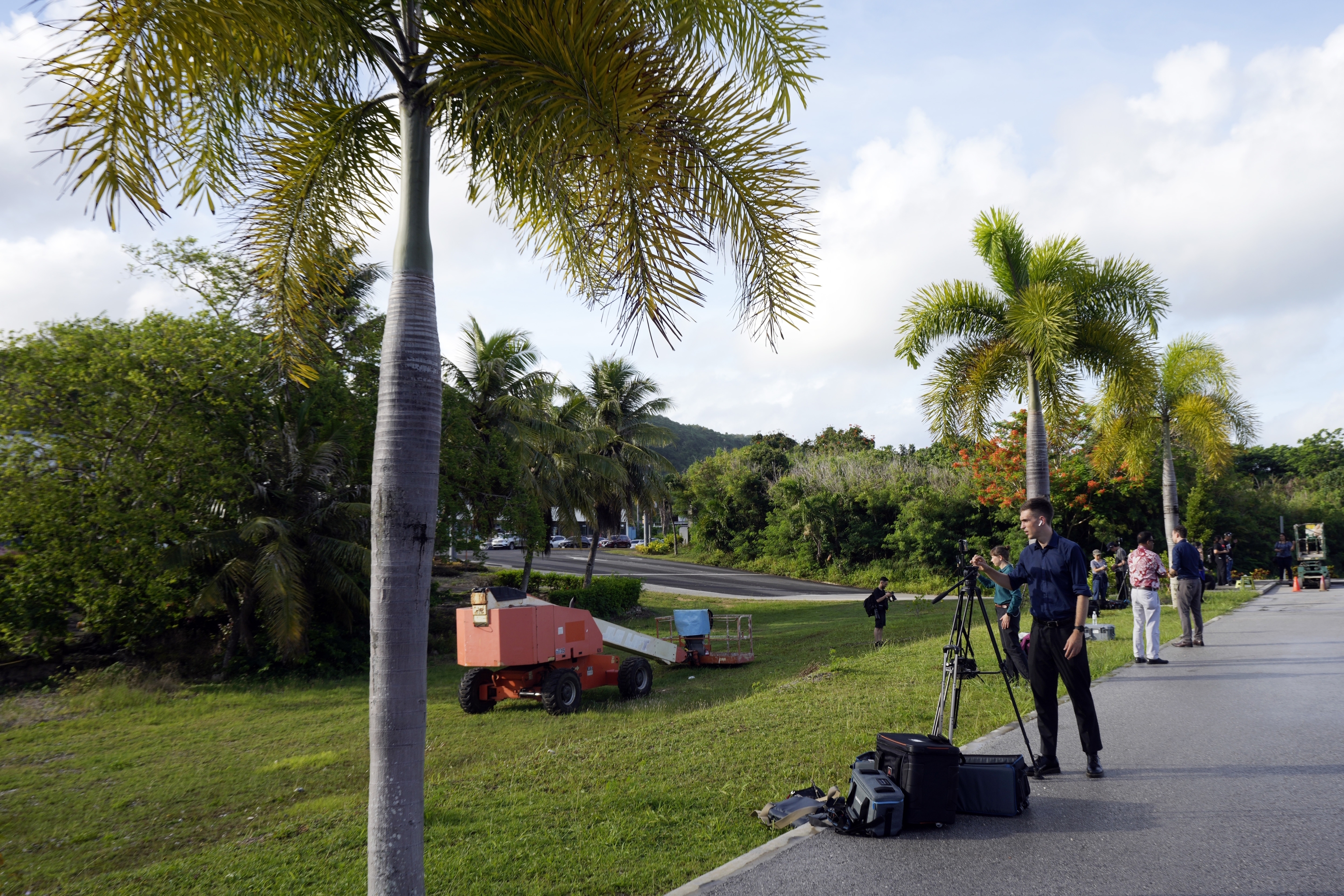When Julian Assange stepped from a car Wednesday to enter the Saipan courthouse, from which he would emerge hours later a free man, it was against a backdrop that could have adorned a travel brochure. Palm trees waved gently and verdant hills stood against a bright blue sky.
If the location felt bizarre to Assange, his sudden arrival — along with dozens of reporters from news outlets across the world — was equally startling to the 43,000 residents of the largest island and capital of the Northern Marianas, a territory of the United States. Fueled by tourism, Saipan's economy is struggling to rebound after the coronavirus pandemic and a devastating typhoon in 2018, with a declining number of direct flights to the island vexing the local travel industry.
The so-called "Caribbean of the Western Pacific" has traditionally been a vacation spot for Japanese, Korean and Chinese tourists escaping wintry weather at home, said Mark Rabago, editor of the Saipan Tribune, a weekday newspaper.
"We haven't had this kind of publicity since the Miura case 15 years ago," Rabago said, referring to the case of businessperson Kazuyoshi Miura, who in 2008 was arrested in Saipan in connection with the death of his wife.
More than 15 years on, Assange's case was much different: with the expected outcome known in advance, the world's media converged on Saipan for theater, rather than surprises. But their arrival came unexpectedly for the low-key, rural island.
Accommodation providers, restaurants, law enforcement and tourism officials had "literally less than 24 hours" to prepare for the influx, said Christopher Concepcion, managing director of the Marianas Visitors Authority. Police officers were deployed to the airport and the courthouse as the WikiLeaks founder arrived there and hotels reported a surge in bookings as reporters scrambled to find places to stay.
"We're used to seeing a bunch of tourists from east Asia, but seeing international media descend on the island all at once, if you will, has been an interesting phenomenon," Concepcion said.
The tourism agency recorded a surge in the number of people visiting its website and social media platforms, and the tourism head said he hoped the balmy island setting for Assange's last legal hurdle would prompt interest from international visitors — particularly as the case emphasized the island's relative proximity to Australia.
"In show business, there's no such thing as bad publicity, right?" Concepcion added.
Before the notorious murder extradition case in 2008, the last time Saipan made world news was when the Japanese emperor and empress visited sites of military significance in 2005, said Rabago of the Saipan Tribune. Steeped in WWII history, the island was the site of one of war's bloodiest battles in the Pacific, in which more than 50,000 Japanese and American soldiers and local civilians died.
It might have been the most unusual Wednesday in memory for some, but as Assange's plane took off hours after the hearing — reporters not far behind him — the familiar pace of things returned.
"It's back to normal beach resort life for us on Thursday," Concepcion said.
Still, he hoped the island had not seen its last of the Australian.
"When he has the time, we totally invite him to come back and enjoy a vacation here with his family," Concepcion said hopefully. His promise to Assange? "People tend to mind their own business and there's no paparazzi."
At least not usually.
